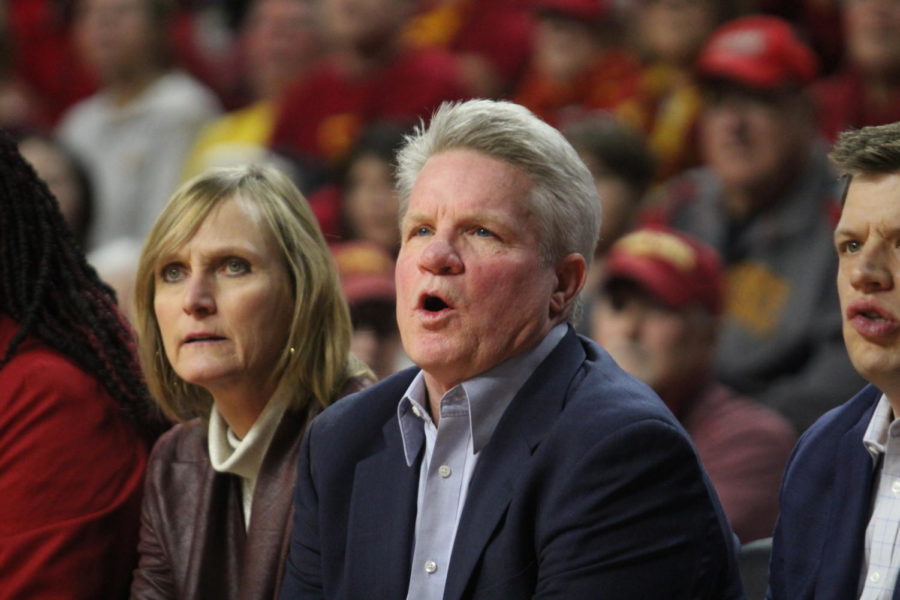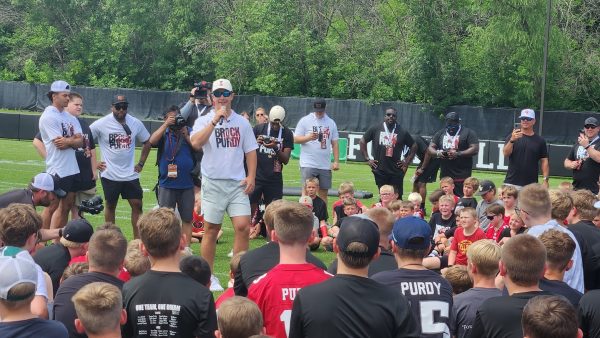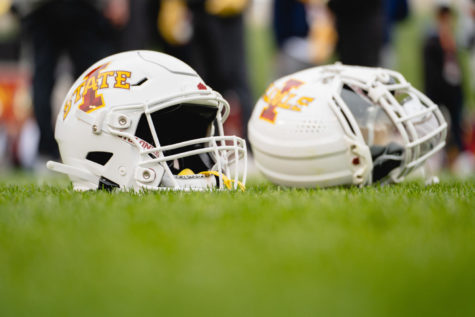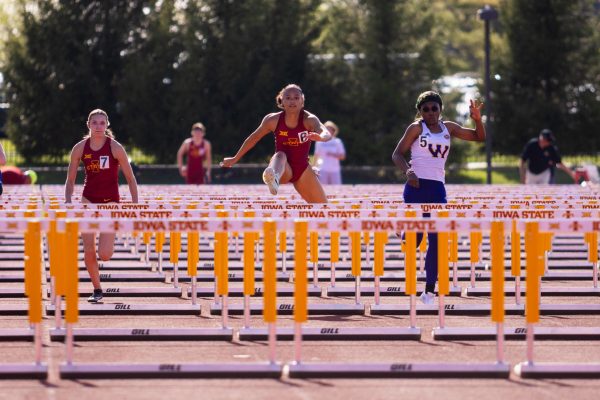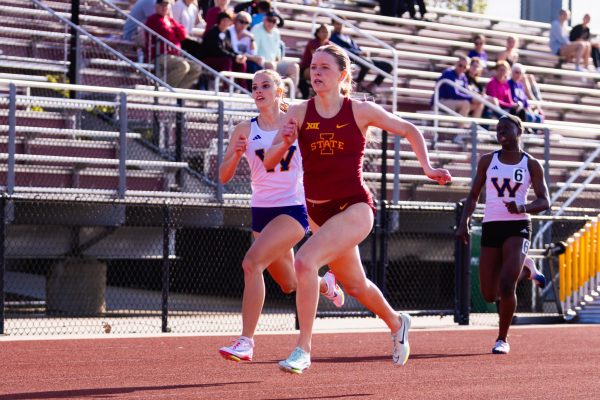Rohlfing: Fennelly, loss and carrying on
Iowa State Head Coach Bill Fennelly coaches from the sideline Dec. 11. Fennelly coached with a heavy heart, having lost his father the morning of the game.
December 12, 2019
My grandpa died two summers ago when I was 19. He was 83 and had been battling cancer for a long time, so it was not a surprise when he passed.
But my grandpa was my person. He was particular to a fault about keeping things clean and in order — especially his lawn. But when I was four, he cut a golf hole and mini green in his backyard, just because he loved golf and he knew I did too.
It was the first time I had to deal with the loss of someone I was really close to. So that night, before we went to Nebraska to spend time with family, I went to the place where I felt at peace — Sunrise Park in Ankeny, Iowa, to shoot some hoops with my best friends and feel for two hours like everything was going to be okay.
Wednesday night’s game between Iowa State and Iowa resonated with me for this reason. Bill Fennelly tragically lost his father, William “Bill” Fennelly, Wednesday morning at the age of 86. But just hours later, he was in Hilton Coliseum, coaching his Cyclones in the most important game of their season.
No one would have blamed him for not taking the court so soon after such a close loss. But the reception and support he received — from the media, members of the Iowa coaching staff and the Hilton crowd — showed a side of sports that goes well beyond the 40 minutes of basketball.
The rivalry between the Cyclones and Hawkeyes suddenly was irrelevant. Instead, the most important thing was comforting a man who had lost his father.
In the postgame press conference, Fennelly answered a question from Tommy Birch of the Des Moines Register regarding the emotions of coaching a game so soon after his father’s death.
In his answer, he gracefully said the focus of the game should be on Iowa’s victory.
“It was a hard day, obviously,” Fennelly said. “I had so many people reach out to us.
“You know, these are tough days, but I’ve been blessed. My dad was 86 years old, lived a phenomenal life, and I’m sure he’s yelling at me for not calling timeout sooner and why did I sub, like he always does.”
Loss is something we all go through. But Fennelly coaching through such a difficult loss is the latest example of a common theme among athletes: going to work in order to cope.
In football, the one example that always is at the front of my mind is the Washington Redskins’ first game following the death of fellow player Sean Taylor. Taylor was killed in 2007 while trying to protect his family from an armed robbery. Days later, his team played on in honor of their fallen teammate. On the first play of the game, the team left Taylor’s safety position open — starting with 10 men on the field as a symbolic tribute.
In college football, one that hit close to home was the death of Nebraska punter Sam Foltz in a car accident before the 2016 season. The Huskers played on in his honor, going out for their first punt formation and leaving Foltz’s position open, taking a delay of game penalty while 90,000 people gave a standing ovation and fought back tears.
It stands out to me as one of the most raw emotional moments in recent sporting memory.
This summer, the French racing driver Anthione Hubert died in an accident during a Formula 2 race in Belgium. The very next day, Formula 1 — which has multiple drivers who were close to Hubert — decided to carry on and race. Charles Leclerc, one of Hubert’s best friends, took home his first career victory in the fallen Frenchman’s honor.
So why do we so often see athletes and coaches carry on playing and staying on the sidelines right after difficult losses?
Because often the field of play is where they go to find peace, and where they feel they can honor the memory of their lost loved ones.
Carrying on after loss is something engrained in the fabric of sports. It was no different for myself when I wanted to find some peace after my grandfather’s death. Nor was it for Fennelly on Wednesday, as he felt the embrace of everyone inside Hilton Coliseum — no matter who they were cheering for in that night’s game.
I can only send my condolences to Fennelly and his family, and hope that in this time of grief and mourning that they can find peace.
But for two hours on Wednesday night, Fennelly coached his team as normal and carried on — for the Cyclones, for himself and for his father.
“I really thank God that he got to see me and my family be at a place that we love so much and that he loved,” Fennelly said.

